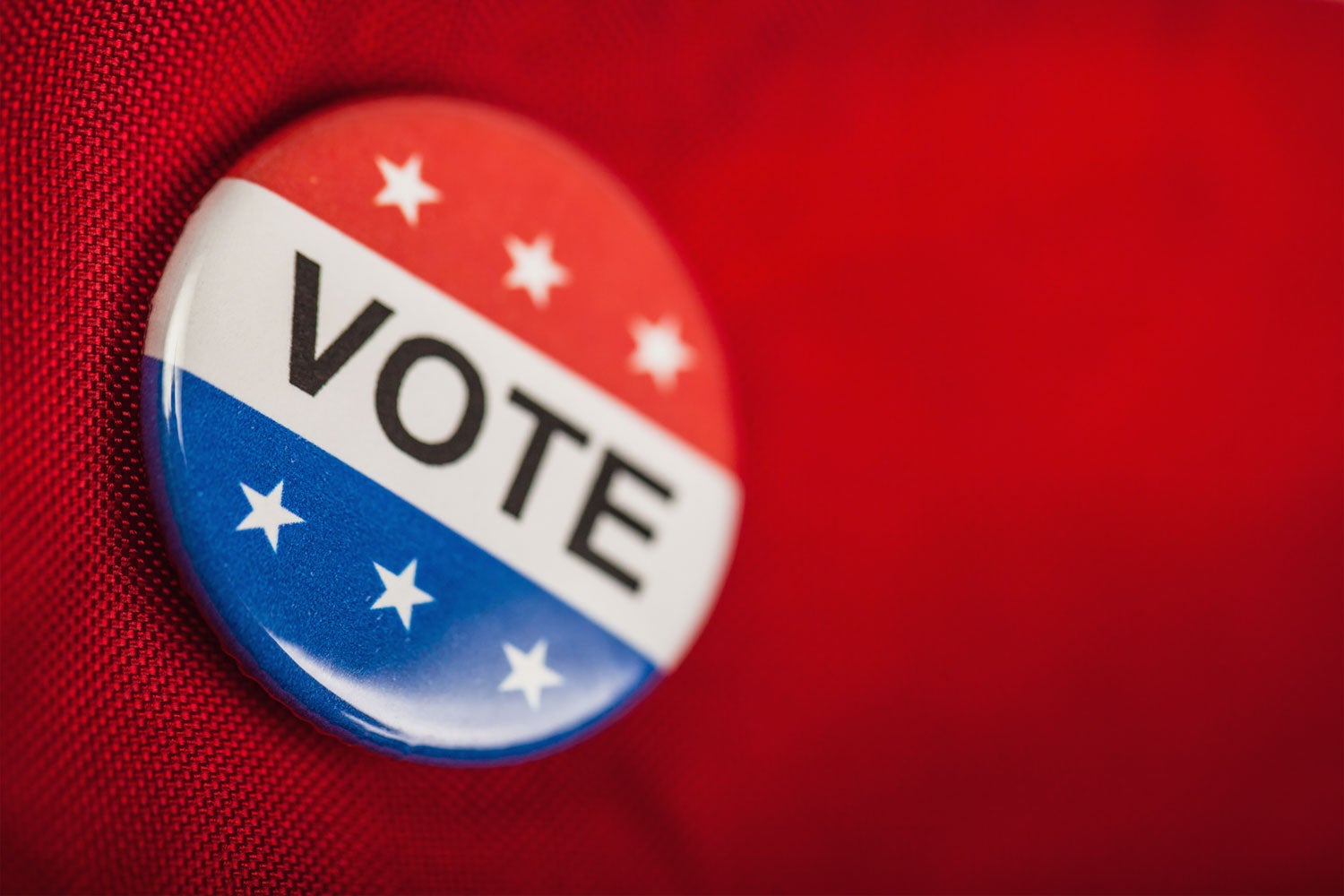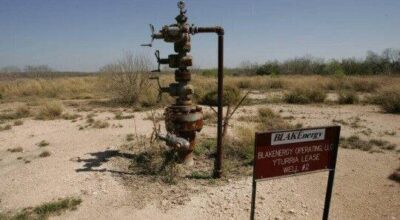Preparing for election day is year-round process with sometimes hefty price tag
Published 12:22 pm Monday, April 30, 2018
A
lthough elections only happen once or twice a year, preparing for an election is almost a year-round process.
From the time the window to file as a candidate opens in November, it is nearly 12 months before the cycle is complete with the general election.
This year is one of the biggest with all county elected offices on the ballot, including the mayor and city commissioners, county judge-executive and all six magistrates, county sheriff and all three district judges. In the fall, there will be school board seats and conservation district offices on the ballot as well. And then there are races for state representative, state senator and U.S. representative.
More than 75 people filed as candidates within Clark County this year. The primary election is less than a month away. Less than six months after that is the general election.
It takes a lot of people, a lot of time and a lot of money to stage an election in Kentucky. Most of it falls on local officials.
Ten months of preparation
Clark County Clerk Michelle Turner said preparations really begin after the filing deadline in January of an election year. Beginning in November, Turner’s office hands out the necessary paperwork for candidacy in county races, and then accepts them and the required fees.
Offices that cover multiple counties or portions of counties, such as state representative, state senator and district or circuit judges must file with the Kentucky Secretary of State’s office.
“On the second Tuesday after the deadline, I draw for ballot position,” she said. “In here we start on the ballot process. We submit those to Harp Enterprises that prints our ballots.”
From there, Turner starts lining up precinct workers. There must be four for each of Clark County’s 26 precincts and a mix of Republicans and Democrats.
In April, absentee voting begins for those who will be unable to vote locally on the election day. Turner said an application must be completed, including why the person is unable to vote, before they can get a ballot in the mail or vote at the courthouse.
“When we get the application, we mail the ballot within three days,” she said.
Absentee voting is not early voting, she said. Voters can’t just show up at the courthouse and vote, she said. Absentee voting is presently open and ongoing until the primary May 22.
The ballots
In most elections, there are multiple ballots depending on precinct and applicable races.
For the May primary, Turner said there are 13 different ballots for voters. Voters in city precincts will have a ballot with the candidates for mayor and city commissioners. There are different ballots based on magisterial districts and school board districts, she said. Unopposed candidates, whether in the primary or general election, will still show up on the ballot.
“For some precincts, there are three separate ballots,” she said.
Until election day, the ballots remain under the control of the county board of elections, locked in a box that takes three keys to unlock, she said. The county clerk, the Democratic party chair and the Republican party each keep a key.
“No one person can open the box,” Turner said. “It’s in a locked room.”
A week to go
Everything cranks up with about a week prior to a primary or a general election.
On May 17, the county board of elections will go to Harp’s storage facility in Lexington and begin inspecting Clark County’s machines, Turner said.
“We take all the roster books with us,” she said. “We inspect each machine and sign off on each machine.”
The machines are then locked and sealed.
The following day, employees from the Clark County Road Department arrive to transport the machines from storage to Clark County. They will be delivered to the precinct locations May 21, the day before the primary.
Election day
For everyone involved, election days are long days.
“I’m here by 5:15 a.m.,” Turner said. “Polls open at 6 a.m. My staff gets here at 5:30. The phones start ringing at 6:01 a.m.”
Poll workers have to be at their locations early to set up the machines and get everything ready for voters to begin arriving at 6 a.m. They are at their precinct until the polls close at 6 p.m., Turner said.
It’s the same for Turner’s staff. In the morning, the board of election members open the absentee machine and begin counting those ballots. Clark County Sheriff Berl Perdue Jr., who serves on the election board, said a couple ballots are usually tossed each election for being improper or incomplete.
Throughout the day, the phones are ringing in the clerk’s office.
“The phones are ringing like crazy,” Turner said. “(Poll) workers will call to confirm addresses. We only have three lines but it’s not enough. Most (callers) want to make sure they can vote or where they go vote.”
After the polls close at 6 p.m., precinct workers will begin returning to the courthouse with their records and data recorders from the voting machines. Once all the requirements are completed, deputy clerks begin compiling the data for those waiting in the fiscal courtroom for the totals.
“Once they start coming in, I can start reading results,” she said. “We don’t leave until its all done. I think the latest I have been here was 8 or 9 p.m.”
After the election
There is still plenty to do after all the votes are counted.
The following day, the road department collects the voting machines to return to storage. They can not be opened until 30 days after the election, Turner said.
The county clerk also compiles written reports from each of the precinct sheriffs into one report for the grand jury to review, Turner said.
Following each election, several counties are chosen to be reviewed by the attorney general; in recent years Clark County was picked twice in consecutive elections, though the counties are picked at random.
Candidates also have a week following the election to request a recanvass or a recount of the votes in their race according to state statute. In a recanvass, which is free, the clerk’s office staff uses the printed records and totals from each precinct to verify the votes. A recount, which requires a bond to be posted, is a legal process which goes through the court system.
Financially speaking
Election costs vary widely from state to state. In Kentucky, the state reimburses each county at the rate of $225 per precinct, according to a new report by the National Conference of State Legislatures. Counties can also request up to 50 cents per registered voter from the state for personnel costs.
Some states, like Alaska and Delaware, pay the full cost of all federal and state elections. In Tennessee and Ohio, the state pays for primary elections and statewide special elections.
All states have the right to regulate their elections, according to the U.S. Constitution.
The total cost for elections is murky at best, the report states.
“State budgets typically do not include a dedicated line item for election expenses,” the report states. “Instead, they may be folded into the budget of the chief election official or other state agencies.”
In Clark County, the county pays for election expenses including preparing the ballots, paying the election workers and storing the voting machines.
According to information from Clark County Judge-Executive Henry Branham’s office, the county spent $62,232 for the November 2016 presidential election. During fiscal year 2016, the county spent $79,801 for the November 2015 election and the May 2016 primary. In fiscal year 2015, the bill was $105,598 for the November 2014 general election and the May 2015 primary.
On average, it works out to $49,526 per election in Clark County.
There were no local elections in 2017, so all Kentucky counties got a financial break as did the county clerks, who oversee the elections in their county.
According to OpenPrimaries.org, Kentucky spent $9.38 million in the 2016 presidential primary. Among neighboring states, Tennessee spent the least at $4.55 million while Illinois topped the list at $27.28 million. Those amounts to not include caucuses, like Kentucky, which are paid for by the political party instead of the state.
Getting a break
Until recently, there was an election on the county level every year.
Presently, one out of every four years there are no elections. During the 2018 regular session of the Kentucky General Assembly, bills were introduced in the House of Representatives and the Senate to move state elections, including governor, to even-numbered years beginning in 2022.
The move would put state elections on the presidential cycle. While it would give clerks another election-free year, it would also save money. The Kentucky Legislative Research Commission estimated it would save each precinct about $4,000.
Kentucky is one of only five states, along with Louisiana, Missouri, New Jersey and Virginia, with odd-year state elections.
This year, both bills died in committee.
Runoffs
This year, the primary will narrow the fields for mayor and Winchester Board of Commissioners by one candidate. Clark County Clerk Michelle Turner said neither race would be on the primary if there were two mayoral candidates or eight for the city commission. This year, there were three and nine, respectively, and the primary will eliminate one person from each race.
One of the three district judge races narrowly avoided a runoff in the primary, after current District Judge Brandy Oliver Brown withdrew from the race, Turner said.
Sheriff’s duties
In each county, the elected sheriff also has specific roles and responsibilities during elections.
“On the sheriff’s end, it’s pretty simple,” Clark County Sheriff Berl Perdue Jr. said. “The sheriff, by statute, sits on the (county) board of elections. We inspect and open the early voting machines about a week before the election. We go to the storage building and inspect the voting machines.”
Because Perdue is on the ballot this year, he appointed one of his deputies to serve in his place.
“On election day, the sheriff’s office does random checks at each precinct and see if things are running smoothly or there are any complaints,” he said. “We rarely have any problems. It may be a political sign being too close to the precinct. We’ll move it.
“I’ve never had a call of someone trying to buy their vote or any fraud.”
Perdue said precinct officials handle some situations themselves, such as one instance where a voter was turned away because he showed up wearing a hat for a particular candidate.
After the polls close, the election board is at the courthouse as precinct officials begin bringing in the documents from the day’s voting.
“It’s an all-day job,” Perdue said. “I usually start at 5 a.m. Some elections it may be 8 or 9 p.m. before we’re done.”
Precinct workers
Each precinct is staffed by two clerks, one precinct sheriff and one precinct judge. Turner said those workers must include two Democrats and two Republicans, though a Democrat may be appointed to work as a Republican or vice versa, she said.
The clerks are responsible for registering voters and verifying their identities prior to voting.
The precinct judge is responsible for asking which machine voters want to use, periodically checking that the machines are clean, and sealing and locking the machines after the polls close.
The precinct sheriff must display the American flag outside and maintain order throughout the day. They are required to report any violations to proper authorities as well as on their report. The sheriff also gets in line behind the final voter when the polls close at 6 p.m., to ensure no one else gets in to vote.
All precinct workers are required to attend a training session prior to the primary and the election, Turner said.
Everyone is paid $25 for attending the training and $125 for working on election day, she said.
The team
It takes a cast of dozens to pull off an election, between the sheriff, the board of elections, the county clerk’s staff and precinct workers.
Between candidates, poll workers, board of elections members and Turner’s office staff, nearly 200 people will be intimately involved in the elections this year.
“Barbara Epperson and John Ballard — they are my election team,” Turner said. “I can’t do it without them.”
After the general election this fall, it will only be a couple months before it’s time to start working on the 2019 state elections, which will include governor and other elected state officials.
The cycle of democracy continues.







